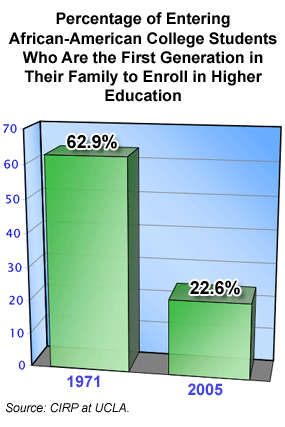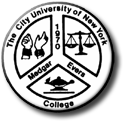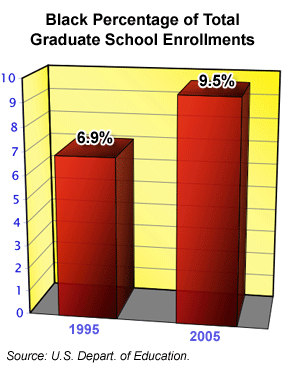MIT Releases Data on Black Faculty: Yet an Important MIT Professor Resigns in Protest of the University’s Denying Tenure to James Sherley
In the spring issue of JBHE, we published a survey showing black faculty levels at the nation’s 25 highest-ranked universities and 25 highest-ranked liberal arts colleges. At the time that our survey was completed, the California Institute of Technology and the Massachusetts Institute of Technology were the only two institutions that declined to participate.
 During the period when our survey was conducted, MIT was under close media scrutiny due to a hunger strike by a black faculty member, James L. Sherley, an associate professor of biological engineering who had been denied tenure. Sherley claims that he was denied tenure on account of his race. Professor Sherley has continued to fight for a fair hearing of his grievances, so far to no avail. Professor Sherley has vowed to stay at MIT past the June 30 date when the university has said it will close his laboratory. During the period when our survey was conducted, MIT was under close media scrutiny due to a hunger strike by a black faculty member, James L. Sherley, an associate professor of biological engineering who had been denied tenure. Sherley claims that he was denied tenure on account of his race. Professor Sherley has continued to fight for a fair hearing of his grievances, so far to no avail. Professor Sherley has vowed to stay at MIT past the June 30 date when the university has said it will close his laboratory.
Now MIT has agreed to furnish its faculty data to JBHE. The latest numbers show there are 32 black faculty members at MIT. They make up 3.2 percent of all full-time faculty at the university. Seventeen blacks at MIT have tenure. They are 2.3 percent of the tenured faculty.
The new data shows some improvement. In 2005 MIT reported to JBHE that it had 28 black faculty who made up 2.9 percent of all its full-time faculty.
Professor Sherley told JBHE that by releasing black faculty figures at this time, “President Susan Hockfield and Provost Rafael Reif are now trying to create the impression that they actually care about the abysmal, low numbers of tenured black faculty members at MIT.”
 In another development, Frank L. Douglas, an African American who is executive director of the MIT Center for Biomedical Innovation, has resigned his post to protest the way Professor Sherley has been treated by the university. In an e-mail to the associate provost and vice president for research at MIT, Dr. Douglas wrote, “I have observed with consternation the inability of the institution to manage the James Sherley situation. Frankly, I am so astonished that the Institute did not resolve this issue that it leaves me to believe that the desire to do this was and is lacking. I leave because I would neither be able to advise young blacks about their prospects of flourishing in the current environment, nor about avenues available to affect change when agreements or promises are transgressed.” In another development, Frank L. Douglas, an African American who is executive director of the MIT Center for Biomedical Innovation, has resigned his post to protest the way Professor Sherley has been treated by the university. In an e-mail to the associate provost and vice president for research at MIT, Dr. Douglas wrote, “I have observed with consternation the inability of the institution to manage the James Sherley situation. Frankly, I am so astonished that the Institute did not resolve this issue that it leaves me to believe that the desire to do this was and is lacking. I leave because I would neither be able to advise young blacks about their prospects of flourishing in the current environment, nor about avenues available to affect change when agreements or promises are transgressed.”
Douglas, regarded as a leading innovator in pharmaceutical research, spent 22 years as an executive in the pharmaceutical industry before joining the academic world. A graduate of Lehigh University, he holds a medical doctorate and a Ph.D. in physical chemistry from Cornell University.
  |
“You can’t grow up in an all-white neighborhood, go to a predominantly white school, attend white cultural and social events, go to a predominantly white university, and then thrive in a world that is today more black, more brown than before.”
— Lezli Baskerville, CEO of the National Association for Equal Opportunity in Higher Education, explaining why some white students are now considering enrolling at historically black colleges (Associated Press, 5-29-07)
|
Racial Differences in Success Rates at Two-Year Community Colleges
New data from the U.S. Department of Education computes completion rates for students who entered community college in 2002. Only 27.2 percent of black students who entered two-year community colleges in 2002 earned an associate’s degree by 2005. For whites, the success rate of students entering community college in 2002 was only slightly higher at 33.8 percent.
There was very little difference between black men and black women at state-operated community colleges. But at privately operated two-year colleges, black women have a graduation rate of 44.3 percent compared to a 34.7 percent for black men.
Eight African-American College Students Named Barbara Jordan Health Policy Scholars
 This summer 16 students of color are participating in the Barbara Jordan Health Policy Scholars program sponsored by the Kaiser Family Foundation. For nine weeks the scholars work in congressional offices in Washington, D.C., and participate in seminars at Howard University. Each scholar writes a health policy research paper on a topic that disproportionately affects racial or ethnic minority groups. Scholars gain knowledge of federal legislative procedure in regard to health policy issues, while further developing their critical thinking and leadership skills. This summer 16 students of color are participating in the Barbara Jordan Health Policy Scholars program sponsored by the Kaiser Family Foundation. For nine weeks the scholars work in congressional offices in Washington, D.C., and participate in seminars at Howard University. Each scholar writes a health policy research paper on a topic that disproportionately affects racial or ethnic minority groups. Scholars gain knowledge of federal legislative procedure in regard to health policy issues, while further developing their critical thinking and leadership skills.
Eight of this year’s scholars are African Americans. Here is a list of the black scholars along with their hometowns and the colleges at which they are enrolled.
• Shaun Abrams (Brooklyn, NY) - Medgar Evers College
• Jas’mon Bailey (Hutton, TX) - Texas State University
• Aquanette Brown (St. Thomas, Virgin Islands) - George Washington Univ.
• Taja Lindley (Neptune, NJ) - New York University
• Tamarie Macon (Fayetteville, NC) - Rutgers University
• Shane’e Tunstall (Dayton, Ohio) - Wilberforce University
• Sonthonax Vernard (Westbury, NY) - Temple University
• Julian Webster (Nashville, TN) - Howard University
Duke University Questions the Value of Black Recruitment Weekends
The Black Student Alliance Invitational Weekend at Duke University is credited with convincing large numbers of African-American students to enroll. But on a campus where racial diversity is in almost all quarters, opposition to black recruitment weekends is growing. Duke president Richard Brodhead, who eliminated black and other minority pre-orientation programs while at Yale, is on record as opposing such race-specific programs at Duke. Yet he has promised to go slowly in implementing any changes.
 Opposition to the black recruitment weekend has also come from Karla Holloway, the William Rand Kenan Professor of English at Duke. Professor Holloway has been an active promoter of increasing racial diversity on campus but she believes the black recruitment weekend is not the way to go about it because it presents an unreal picture of what Duke is really like for black students. Opposition to the black recruitment weekend has also come from Karla Holloway, the William Rand Kenan Professor of English at Duke. Professor Holloway has been an active promoter of increasing racial diversity on campus but she believes the black recruitment weekend is not the way to go about it because it presents an unreal picture of what Duke is really like for black students.
In an editorial in the student newspaper recently, she wrote: “Black Student Alliance Invitational Weekend, as well as black student orientations where students meet black faculty and participate in black cultural events (like step-shows), seem an odd introduction to a university that anticipates and hopes for a culture of inclusion. It suggests that the institution anticipates that these particular students’ cultural and academic universe might be best determined by their race.”
Professor Holloway concluded, “I don’t think that any of us would say that we look at students first by their race when they come into our classrooms, so why would we want that in a recruitment weekend?”
Delaware State University Awards Its First Doctorates
 At commencement ceremonies last month, Delaware State University, the historically black educational institution in Dover, awarded the first doctorates in university history. Ben Kamau, a native of Kenya, received a Ph.D. in physics. Paul Gibson of Dover, Delaware, was awarded a doctorate in mathematics. Gibson, now 65 years old, has been a member of the Delaware State faculty since 1976. There are an additional 22 students in the mathematics and physics doctoral program at Delaware State. The only other doctoral program at the university is in educational leadership. This program, established in 2004, has not yet turned out any graduates. At commencement ceremonies last month, Delaware State University, the historically black educational institution in Dover, awarded the first doctorates in university history. Ben Kamau, a native of Kenya, received a Ph.D. in physics. Paul Gibson of Dover, Delaware, was awarded a doctorate in mathematics. Gibson, now 65 years old, has been a member of the Delaware State faculty since 1976. There are an additional 22 students in the mathematics and physics doctoral program at Delaware State. The only other doctoral program at the university is in educational leadership. This program, established in 2004, has not yet turned out any graduates.
Less Than One in Four African Americans Entering Higher Education Today Are First-Generation College Students
A quarter of a century ago a large number of black students entering college were the first generation in their family to enroll in higher education. But this is no longer the case. The parents and sometimes grandparents of today’s college-bound black students often have had college experience of their own.
In 1971, according to data from the Cooperative Institutional Research Program at the University of California at Los Angeles, 38.5 percent of entering college students of all races were the first in their families to enroll in higher education. By 2005 less than 16 percent of all first-year college students were the first generation in their families to enter college.
For blacks, in 1971 nearly 63 percent of all black students entering higher education were first-generation college students. Today 22.6 percent, less than one in four African-American students entering college, are the first in their families to enroll in higher education.

Board of Trustees Rescinds Decision to Name Education Building After Former Chancellor James Renick
 In 2005 the board of trustees of North Carolina A&T State University approved the naming of the new School of Education building on campus after former chancellor James Renick. Now the board has rescinded that decision. The official reason for the name change was that proper procedures were not applied when naming the new building. In 2005 the board of trustees of North Carolina A&T State University approved the naming of the new School of Education building on campus after former chancellor James Renick. Now the board has rescinded that decision. The official reason for the name change was that proper procedures were not applied when naming the new building.
But it is widely believed that a series of internal audits conducted in late 2006 concerning financial irregularities during the Renick years may have played a role in the board’s decision. Renick left the university in 2006 to take an executive position at the American Council of Education.
The New Chancellor of North Carolina Central University
 This past Friday, Charlie Nelms, vice president for institutional development at Indiana University, was named chancellor of North Carolina Central University. Nelms has previously served as president of the University of Michigan at Flint and the Indiana University campus at Richmond. A graduate of the University of Arkansas at Pine Bluff with a degree in agronomy and chemistry, he holds a master’s degree and an educational doctorate from Indiana University. This past Friday, Charlie Nelms, vice president for institutional development at Indiana University, was named chancellor of North Carolina Central University. Nelms has previously served as president of the University of Michigan at Flint and the Indiana University campus at Richmond. A graduate of the University of Arkansas at Pine Bluff with a degree in agronomy and chemistry, he holds a master’s degree and an educational doctorate from Indiana University.
Dr. Nelms, who will assume office on August 1, succeeds James Ammons who left to become president of Florida A&M University.
Appointments
 • Adam Clayton Powell III was named vice provost for globalization at the University of Southern California in Los Angeles. He was director of the university’s Integrated Media Systems Center. He also serves as a senior fellow at the USC Center on Public Diplomacy. • Adam Clayton Powell III was named vice provost for globalization at the University of Southern California in Los Angeles. He was director of the university’s Integrated Media Systems Center. He also serves as a senior fellow at the USC Center on Public Diplomacy.
 • Nicole Thorne Jenkins was named an associate professor of accounting at the Owen Graduate School of Management at Vanderbilt University. She was an assistant professor of accounting at Washington University in St. Louis. A graduate of Drexel University, Professor Jenkins holds a Ph.D. in accounting from the University of Iowa. • Nicole Thorne Jenkins was named an associate professor of accounting at the Owen Graduate School of Management at Vanderbilt University. She was an assistant professor of accounting at Washington University in St. Louis. A graduate of Drexel University, Professor Jenkins holds a Ph.D. in accounting from the University of Iowa.
 • Darryl S. Tukufu is the new vice president for academic affairs at Crichton College, a Christian liberal arts institution in Memphis. He also serves as an associate professor of urban studies. • Darryl S. Tukufu is the new vice president for academic affairs at Crichton College, a Christian liberal arts institution in Memphis. He also serves as an associate professor of urban studies.
Dr. Tukufu is a graduate of Youngstown University. He holds a master’s degree and a Ph.D. in sociology from the University of Akron.
Grants
 • Medgar Evers College, the predominantly black campus of the City University of New York in Brooklyn, received a four-year, $800,000 grant from the U.S. Department of Education. The grant will be used to fund a program that will train 80 special education teachers by the year 2011. • Medgar Evers College, the predominantly black campus of the City University of New York in Brooklyn, received a four-year, $800,000 grant from the U.S. Department of Education. The grant will be used to fund a program that will train 80 special education teachers by the year 2011.
• Fourteen historically black colleges and universities will be among 32 minority-serving institutions that receive $8.6 million in grants under the Department of Defense’s Minority Institutions Infrastructure Support Program. The grant funds, ranging between $75,000 and $500,000, will be used for education programs and research facilities in scientific programs related to national security.
The black colleges and universities receiving grants under the program are: Alabama A&M University, Charles R. Drew University of Medicine and Science, Fisk University, Hampton University, Jackson State University, Johnson C. Smith University, Lincoln University of Pennsylvania, Miles College, North Carolina A&T State University, South Carolina State University, Southern University, Spelman College, Wiley College, and Winston-Salem State University.
|
Challenge to the Theory That Ivy League Colleges Boost the Racial Diversity of Their Student Bodies by Recruiting Large Numbers of Black Athletes
 It is widely believed in many circles that the Ivy League colleges are able to boost their racial diversity figures of their student bodies by recruiting large numbers of black athletes. These black athletes, so the theory goes, would not have the qualifications to enter the Ivy League if they were judged solely on their academic merit. It is widely believed in many circles that the Ivy League colleges are able to boost their racial diversity figures of their student bodies by recruiting large numbers of black athletes. These black athletes, so the theory goes, would not have the qualifications to enter the Ivy League if they were judged solely on their academic merit.
But a study by the Harvard Crimson says that this theory is totally without merit. The figures show that while blacks are nearly 8 percent of the student body at Harvard, they make up only 5.5 percent of the varsity athletes. At Yale, according to the Crimson’s data, blacks are 7.6 percent of the student body but only 5 percent of the varsity athletes. Brown and Penn also had higher percentages of black students than the black percentage of their student athletes. In contrast, blacks are 4 percent of the student body at the University of California at Berkeley. But 16 percent of the recruited athletes are black.
Nearly a third of the black athletes at Harvard play football. But only 17.5 percent of the players on the Harvard football team are black. Nationwide, more than 45 percent of college football players are black. In men’s basketball, 28.6 percent of the players at Harvard are black. Nationwide, 58 percent of the men playing college basketball are black.
If basketball and football are taken out of the statistics, only 3.3 percent of all varsity athletes at Harvard are black. Many of Harvard’s 41 varsity teams are almost exclusively white.
NAACP to Close Offices and Make Large Cuts in Staffing
 The National Association for the Advancement of Colored People, the nation’s oldest civil rights organization, announced late last week that, due to a budget shortfall, it will close its seven regional offices and cut its national staff by 40 percent. Through attrition and layoffs, staff at its national office will be cut from 119 to 70. The National Association for the Advancement of Colored People, the nation’s oldest civil rights organization, announced late last week that, due to a budget shortfall, it will close its seven regional offices and cut its national staff by 40 percent. Through attrition and layoffs, staff at its national office will be cut from 119 to 70.
Many of the layoffs are from the NAACP’s public policy group, which is concerned with monitoring civil rights violations. Bruce Gordon, former president of the NAACP, told the Washington Post, “It’s tragic. They are the talent. They are all leaving.”
Gordon resigned earlier this year after clashing over the future direction of the NAACP with the group chairman, Julian Bond, and other members of the executive board.
Surge in Black Enrollments in Graduate School
The latest figures from the U.S. Department of Education show that in 2005 there were 207,968 blacks enrolled in graduate school. This is up from 197,472 in 2004, an increase of 5.3 percent. A decade ago there were 119,000 black students enrolled in graduate programs. So over the past decade there has been a whopping increase of nearly 75 percent in black graduate school enrollments. Today blacks make up 9.5 percent of all enrollments in graduate school. A decade ago blacks were 6.9 percent of total enrollment in graduate school.
Black progress in professional school enrollments has not been as spectacular. In fact, in 2005 there was a slight drop in black professional school enrollments from a year before. This is undoubtedly the result of a continuing decrease in the number of blacks enrolling in law school.
In 2005 there were 24,163 blacks enrolled in professional schools. They made up 7.2 percent of all students enrolled in professional schools nationwide. Over the past decade there has been a 14 percent increase in black professional school enrollments. But the black percentage of total enrollments in professional schools has remained about the same.

A Black College Student on the Fast Track to Success
 Cary Wallace of La Place, Louisiana, is a 17-year-old student who recently graduated from high school. This fall he will enroll at Xavier University, the historically black educational institution in New Orleans. But unlike other entering students, Wallace will enroll as a junior. Cary Wallace of La Place, Louisiana, is a 17-year-old student who recently graduated from high school. This fall he will enroll at Xavier University, the historically black educational institution in New Orleans. But unlike other entering students, Wallace will enroll as a junior.
During high school Wallace took Advanced Placement courses to earn college credits. He also took college courses online. Additional college classes were taken by Wallace during the summer and on weekends.
Wallace applied to 14 colleges and received offers of full tuition scholarships from 11 of them. He chose Xavier because of its excellent program in pharmacology. He plans to finish college in two years with a major in biology. He will take courses during the summer working toward a master’s degree in business management. Wallace then hopes to enroll in the doctoral program in pharmacology at the Tulane University medical school. If all goes according to plan, he will earn his Ph.D. at age 23.

UNIVERSITY OF LOUISVILLE

Director of Major Gifts - Health Sciences Center (Job #21493)
The University of Louisville is seeking an effective, innovative and seasoned major gifts officer with experience building long term relationships with prospects and donors, and a proven track record in identifying, cultivating, soliciting and closing six and seven figure gifts. Candidate will have experience in crafting development strategies and proposals in conjunction with faculty and advancement leadership. The position will be a part of an established development team.
The Director of Development for Major Gifts for the Health Science Center reports to the Associate Vice President for Health Sciences Center Development and works primarily with the Dean of the School of Medicine, and as needed with the Deans of the School of Nursing and the School of Public Health & Information Sciences, to manage a portfolio of 100 prospects. Self-driven and goal oriented, the individual will be adept in satisfying multiple constituencies.
The successful candidate will possess:
• Experience working in, and/or leading, a health sciences development program and previous involvement in capital campaigns;
• A passion for health care and research and a high level of energy, creativity and initiative;
• Demonstrated success in constituency development, especially with grateful patients;
• Ability to work closely with, and direct activities of, dynamic medical professional and community leaders;
• Ability to plan, organize and direct the activities of volunteers;
• Excellent communication skills with an ability to write and speak persuasively about the role of philanthropy and its impact on patient care and research;
• Demonstrated ability to work constructively with other members of a development team, and with other professionals in institutional advancement including consultants;
• The ability to think on your feet, and make good judgments under pressure;
• An understanding of the research, teaching, and service mission of a complex Health Science Center with a vision for the role of philanthropic development.
Requirements: Master’s degree and five years of related experience. Additional experience may be used on a one-to-one basis to offset the educational requirements.
Salary: commensurate with experience.
SUBMITCOMPLETE APPLICATION at: https://www.louisville.edu/jobs/apply/staff
Reference Job 21493. Please attach electronic resume to application.
Deadline: Midnight June 16, 2007
For more information about the University of Louisville, please visit https://www.louisville.edu

The Gates Millennium Scholarship Program Has Helped Thousands of Black Students Go to College
 The seventh class of Gates Millennium Scholars was recently announced. This year’s 1,000 winners of the Millennium Scholarships come from 822 different high schools in 47 states. The seventh class of Gates Millennium Scholars was recently announced. This year’s 1,000 winners of the Millennium Scholarships come from 822 different high schools in 47 states.
The scholarship program, backed by a $1 billion contribution from the Bill and Melinda Gates Foundation, is administered by the United Negro College Fund. The scholarships offer full unmet financial need of underrepresented minority students including African Americans, Hispanics, American Indians, and Asian and Pacific Islanders. Scholarships can be renewed for up to five years for students in good academic standing. In addition, college graduates who go on to seek graduate degrees in education, science, engineering, mathematics, library science, and public health are eligible for continued funding.
Since its inception seven years ago, the Gates scholarship program has given out over $300 million to more than 11,000 students. While there is no data on the race of the recipients, undoubtedly several thousand Gates Millennium Scholarship winners are black.
Students who win the Gates scholarships have achieved a graduation rate of 77.6 percent. Nationwide, the overall black student college graduation rate is 41 percent.
  |
0.5 Average number of blacks among the 10 best friends of white students at the nation’s most selective colleges and universities.
2.6 Average number of whites among the 10 best friends of African-American students at the nation’s most selective colleges and universities.
source: Douglas S. Massey et al., American Journal of Education, February 2007
|
New President of Alcorn State University Under Treatment for Acute Leukemia
 George Ross is scheduled to assume duties as the seventeenth president of Alcorn State University in Mississippi, on July 2. However, it was announced this past week that Dr. Ross is undergoing treatment for acute leukemia at University Hospital in Ann Arbor, Michigan. George Ross is scheduled to assume duties as the seventeenth president of Alcorn State University in Mississippi, on July 2. However, it was announced this past week that Dr. Ross is undergoing treatment for acute leukemia at University Hospital in Ann Arbor, Michigan.
Ross has been serving as vice president for finance and administrative services at Central Michigan University in Mount Pleasant.
Ross is a certified public accountant. He holds bachelor’s and master’s degrees in business administration from Michigan State University and an educational doctorate from the University of Alabama.
In Memoriam
Parren J. Mitchell (1922-2007)
 Parren J. Mitchell, Maryland’s first black congressman and a former college professor, died from complications of pneumonia late last month at the Greater Baltimore Medical Center. He was 85 years old. Parren J. Mitchell, Maryland’s first black congressman and a former college professor, died from complications of pneumonia late last month at the Greater Baltimore Medical Center. He was 85 years old.
Parren Mitchell was a native of Baltimore. A graduate of the city’s segregated Frederick Douglass High School, he joined the U.S. Army in 1940 and was wounded in Italy during World War II. Returning home in 1946, Mitchell earned a bachelor’s degree from Morgan State University and a master’s degree from the University of Maryland.
After serving in local government, in 1965 Mitchell was appointed professor of sociology at Morgan State University. He was also assistant director of the university’s Urban Affairs Institute.
In 1970 Mitchell became the first black person elected to the U.S. House of Representatives from Maryland. He was one of the founding members of the Congressional Black Caucus. Mitchell served eight terms in the House rising to chair the Committee on Small Business. There he was the author of legislation calling for a fixed percentage of government contracts to be set aside for minority-owned firms. He retired from Congress in 1986.
In 1996 the Parren J. Mitchell Foundation for Education and Talent Development was formed. The foundation provides two-year, $25,000 scholarships as well as mentoring opportunities for students at historically black colleges and universities who are interested in entrepreneurship.
Betty Williams (1934-2007)
Betty Williams, a career educator who was the first black woman to serve on the board of trustees of the body overseeing public higher education in Mississippi, died late last month at a hospital in Columbus, Mississippi. She was 73 years old.
Williams was a graduate of Jackson State University and held a master’s degree from Washington University in St. Louis. She served as a public elementary school principal for 20 years in Columbus. In 1976 she was appointed to the board of trustees of Mississippi’s State Institutions of Higher Learning, which oversees the operations of eight public universities, including three historically black institutions. She served on the board for 12 years including one year as president.
|
 .
.